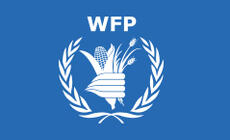Institution Background
The World Food Programme (WFP) is the world’s largest humanitarian organization saving lives in emergencies and using food assistance to build a pathway to peace, stability and prosperity for people recovering from conflict, disasters and the impact of climate change. WFP was awarded the Nobel Peace Prize in 2020.
Powered by the passion, dedication and professionalism of over 20,000 staff worldwide, WFP has a presence in some 120 countries and territories to carry out its mission
WFP is entirely funded through voluntary contributions of donor governments, institutions, corporations and individuals, reaching more than 100 million people each year. More than 90 percent of all government contributions go directly to supporting life-saving and life-changing operations.
WFP is governed by the WFP Executive Board, which consists of 36 Member States and provides intergovernmental support, direction and supervision of activities.
WFP works with governments, other United Nations agencies, non-governmental organizations, private companies and others to mobilize resources, find innovative solutions and reach vulnerable communities with the assistance they need.
Evaluation Function
As a leader in humanitarian response and sustainable development worldwide, it is essential that the WFP remains fit for purpose. We achieve this by conducting independent, evidence-based evaluations at all levels of the organization.
WFP evaluations involve periodic, impartial, systematic assessments of our activities, operations, strategies and policies. As well as providing lessons for immediate use, evaluations allow us to capture and preserve institutional knowledge. This creates an evidence base of our successes and challenges across diverse settings, which we use to learn and improve.
As the world faces mounting humanitarian challenges, independent evaluations help quantify how well WFP is achieving its mission – not only in our response to emergencies, but also through our resilience-building efforts.
The Office of Evaluation (OEV) supports regional bureaux and country offices in managing evaluations themselves. This localized approach shortens the learning cycle, strengthens partner and beneficiary accountability, and provides donors and partners with greater detail about the effectiveness, efficiency, relevance, impact and sustainability of WFP’s work.
All WFP evaluations include impartiality safeguards. They are conducted by independent professionals in accordance with United Nations Evaluation Group norms and standards, and WFP’s evaluation quality assurance system.

